|
Media Training
ISOC media training builds confident and effective spokespeople
Great spokespeople weren’t born that way. They mastered their art in media training. Interview techniques are also a science that can be taught, learned, practiced and perfected. ISOC media training builds exactly these skills through systematic and high-quality coaching. Join us face to face or live online from the ISOC studios.
Download PDF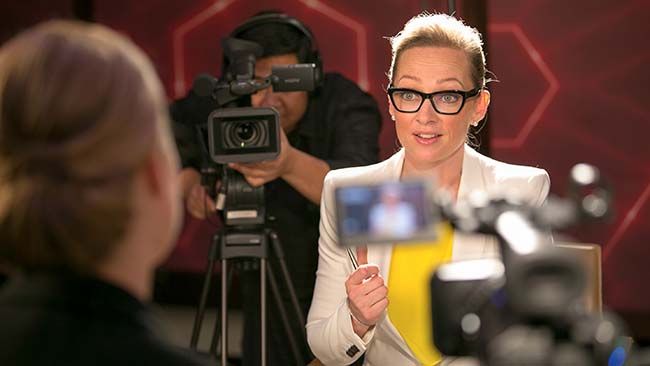
Reputation is a business critical asset. Spokespeople are its custodians.
ISOC media training empowers spokespeople as champions of reputation.
The best interviewees are confident and engaging. They give interviews with high-value impact. They project expertise, and also inspire trust. They are polished, but also authentic. They are natural and likeable. They are convincing and memorable. They answer tough questions without being evasive. They stay calm under pressure. ISOC media training builds exactly these skills.
Contact us
Global brands trust ISOC for communication training
Media training at ISOC
How ISOC media training works
The ISOC media training model uses active learning with positive individual coaching, based on a systematic competency matrix. It has been refined through more than 5,000 media training sessions over more than 20 years. It works consistently and produces immediate results. You will see a measurable improvement in performance by the end of the session.

How to join ISOC media training
You can access self-paced e-learning for a video-based course, right now or whenever suits you.
You can join a public group media training course live online for an interactive session including simulated interviews, recorded and replayed for on-the-spot individual coaching.
If you're looking to train a senior executive or group of spokespeople, a tailored in-house programme is the way to go.
All options include the complete ISOC e-learning suite for media training.
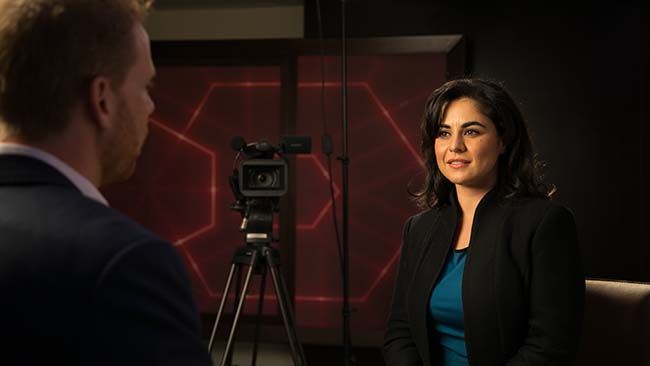
ISOC helps all kinds of people to build better professional communication skills: CEOs, special needs teachers, ambassadors, human rights lawyers, billionaires, Ministers, athletes, United Nations officials.
We train everyone from Prime Ministers to rocket scientists.
Media training skills and topics
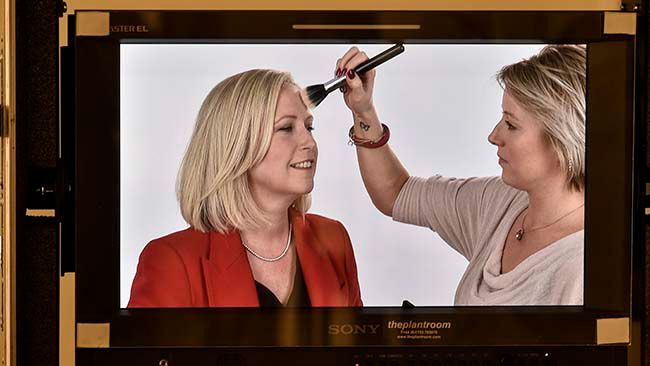
Preparation
Understand the strategic impact of interviews for reputation.
Evaluate and plan how to generate business value from an interview.
Prepare effectively for an interview using a structured process.
Draft strong messages, persuasive hard proof and memorable soft proof.
Anticipate questions by analysing the journalist, media and news context.

Familiarisation
Build confidence through practice in a safe environment with encouraging feedback.
Normalise interview situations so that you can relax and perform at your best.
Familiarise with a variety of formats, styles and locations (TV, radio, print, online).
Manage fear and nerves using proven techniques.
Work with broadcast technology: microphones and cameras.

Performance
Improve body language (eye contact, posture, movement and gesture).
Build self-awareness and eliminate distracting mannerisms.
Improve voice with attention to pace, tone and volume.
Raise energy levels for a dynamic and engaging delivery.

Content
Use clear language at the right technical level for your audience (no jargon).
Produce strong quotes and sound-bites.
Use the three key modes: Explain Mode, Story Mode and Conversation
Speak in facts and examples to be convincing and authoritative.
Find news angles to make your message relevant to this particular audience.

Dynamics
Understand how journalists think.
Use bridging techniques to get to your messages.
Be proactive: steer the interview – subtly – onto safe and productive topics.
Stay in control of the agenda, direction and dynamics of an interview.
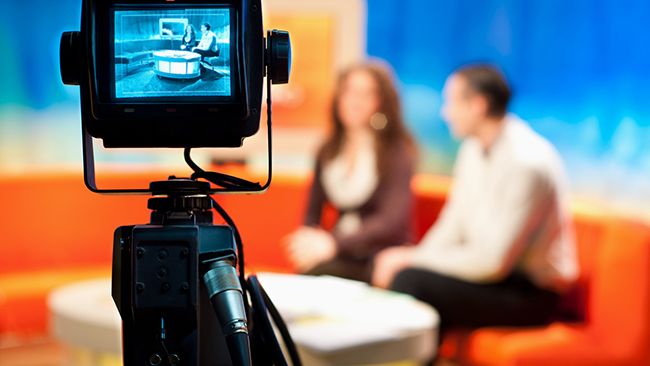
Challenges
Answer difficult questions using five universal strategies, without being evasive.
Avoid common mistakes and pitfalls.
Recognise crafty interviewing tricks and techniques.
Handle aggressive journalists and confrontational questioning.
Stay positive and calm under pressure.
Media training session outline
1) Meet your trainers
A communication coach will lead the session, give expert feedback and learning points, and advise on how to support your organisation’s communication strategy. ISOC communication coaches are senior PR and media professionals with decades of experience advising and coaching at the highest levels of business and government, including prime ministers and royalty.
A training journalist will simulate realistic interviews and share insider secrets, tips and tricks that will help you understand how reporters think and work. ISOC training journalists are all seasoned interviewers with active or recent experience with the biggest names in the media, including BBC, Reuters, CNN, Dow Jones Newswires, Sky, Bloomberg, CNBC and most of the main international newspapers. Their professional fields range from specialist corporate, political and financial reporters to TV news anchors and foreign correspondents.
A technical team will operate the cameras, set up shots and lighting, and help you with microphones. It will be a highly realistic experience using a full set of broadcast-standard equipment to simulate both studio and on-location interviews.

2) First briefing: essential concepts
In the first of two briefings, your communication coach will cover the concepts and best practices that are central to every strong media interview. This section is brief – you will not sit through a long boring lecture. You will watch fresh and relevant video clips showing practical examples of good and bad performance. You will learn to:
- Position your ideas as strong messages
- Reinforce them with memorable examples and credible proof points
- Convince journalists of your news value
- Make the most of your voice and body language
- Work professionally with cameras and microphones
- Capitalise on opportunities and avoid common mistakes

3) Structured preparation
We will give you a personalised interview scenario written to simulate topics and situations that you are likely to face in real media encounters. Then while you wait your turn to be interviewed, we will guide you through a structured preparation process using worksheets to develop the ideas and resources that you will need, including messages, proof points, news angles and media insight.
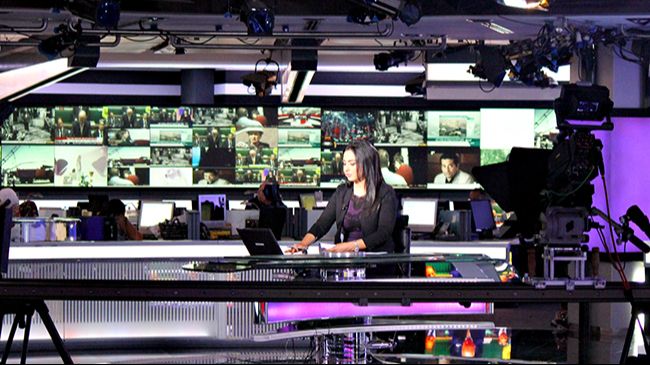
4) First interview
When you feel ready, we will bring you through to the interview room, equipped with a full mobile studio set-up including broadcast-standard camera, sound and lights. You will give a brief interview lasting around three minutes. If this is your first time on camera, or you are feeling nervous, we will make it friendly and positive to help you familiarise, relax and perform to your full potential.

5) Feedback and coaching
Next, we will play back the interviews on a big screen. Your coach will pause the replay to give analysis and feedback, always positive and constructive, and always in the form of specific learning points that you can use to do better next time. We normally give feedback in a group session so that you can learn from each other and benefit from discussions.
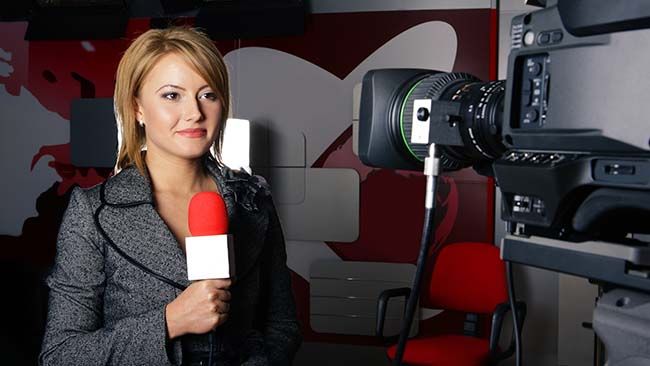
6) Second briefing: advanced techniques
The second briefing covers best practice and techniques for difficult situations and challenging interviews. You will learn to:
- Answer tough questions without being evasive
- Deal with confrontational journalists
- Handle sensitive topics and crisis interviews
- Direct the interview agenda proactively
- Recognise and manage the subtle dynamics at play

7) More interview cycles
From now on, the session is purely practical. In a real interview, there is no time to reflect on theory: it must be internalised through practice so that you do the right thing instinctively. You will spend most of your media training session “learning by doing” in a series of simulated interviews with the training journalist.
Depending on the size of your group, you may have time for three or four scenarios. They will vary in topic, format and difficulty so that you are always stimulated and challenged, but never forced out of your comfort zone.
The subject matter will be familiar, realistic and based around your own knowledge and expertise. We recommend a mix of proactive topics (positive news or thought leadership) and reactive topics (problematic issues that require comment), since journalists will surely ask about both.

8) Conclusions
That’s it! At the end of the day the communication coach reviews key learning points for everyone and reminds each person of their individual action points. By this stage – without exception – we will have seen a measurable improvement in performance on camera, and everyone is feeling inspired and ready for the real thing.
You will take away a comprehensive media training manual, a set of checklists and reminder cards, and a copy of your interviews on a memory stick. The trainers will compile performance analysis reports and recommendations for HR and communication departments as required.
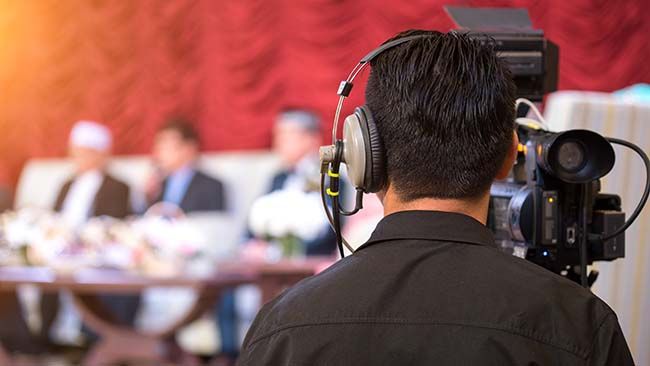
Face to face or live online?
Live online media training is convenient and cost-effective for spokespeople in remote locations and also for distributed teams wanting to train together. It's a good option if you don't have the time or budget to travel to an ISOC centre, but also relevant while many real-world media interviews are happening live online.
Face-to-face media training allows for direct and personal coaching and also confidence building through realistic simulations with cameras, lights and microphones. You can come to us for training in London or Dubai, or we can come to you with a mobile studio kit to deliver training at your offices, or third party conference facilities.
Interview simulation scenarios
Interview simulation scenarios
For every practice interview, we'll give you a scenario so that you can prepare for a realistic situation and learn to handle yourself confidently in an interview that feels real.
There are endless possibilities; here are a few examples:
- An “expert commentator” interview on a live rolling news show
- A studio interview for a major news announcement or launch
- A profile interview with a national newspaper, with a video clip for its website
- A telephone interview with a correspondent for an international newswire
- A radio studio interview with a discussion programme on a talk radio station
- A pre-recorded on-location interview for a local TV news feature package
- An informal stand-up interview with a reporter covering a conference
- A live evening TV panel discussion on a “thought leadership” topic
- A “down-the-line” interview speaking direct to camera with an earpiece
- A crisis statement and Q&A session or news conference
Request an instant proposal
Please use the form below to let us know a little more about your media training requirements. Whatever you're looking for, chances are we've worked on something similar before. Feel free to give as much or as little detail as you like. We'll take it from there!
